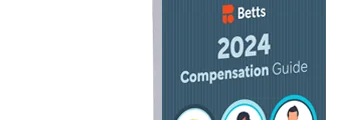Not every job seeker has a resume full of professional experience. Yet, hiring managers are still interested in entry-level applicants. These job seekers offer great new perspective, are trainable, and are ideal contenders for internal growth. Still, not every prospective employee is a fit for every company. How can hiring managers begin to identify better applications? To help hiring managers weed through resumes that don’t highlight obvious translatable knowledge, we’ve outlined the best ways to read between the lines on a resume.
LOOK FOR THE INTANGIBLES
When looking at an entry-level candidate’s resume, the first thing hiring managers should look for are intangible characteristics. Regardless of professional experience, traits such as leadership, integrity, and perseverance can be seen. Participation in clubs, managing different organizations, and rising in athletic or intellectual skill are all indicators that a job seeker would make a great employee.
LOOK FOR THE SKILLS
Skills necessary for the workplace can be learned anywhere. Knowing how to manage time, properly deal with altercations or disagreements, and meeting deadlines are all talents a great employee needs. Finding candidates that show multiple overlapping responsibilities or participation is one indicator that the candidate understands the need to manage expectations and workflow. Highlighted class projects can also point to skills a job seeker has learned, even without the certifications.
LOOK FOR THE COMMITMENT
Hiring managers should also look at tenure. Regardless of where a candidate has spent time, the commitment they exhibit is translatable to professional experience. Showing dedication to a cause shows they have worked through the initial learning phase. Finding a drive for excellence is a challenging. Yet, a job seeker with a background of long-term commitments is more likely to understand the dedication required to succeed within an organization.
LOOK FOR THE VALUES
Finding a resume that shows the same values your company holds can be a clear indication that the candidate may be an ideal employee. If a job seeker partners with organizations similar to your ideals, the candidate could be a better fit for your culture. Additionally, if the job seeker highlights goals on their resume, you should match your company’s career path. This alignment can show a prospective employee a company’s long-term commitment to internal growth.
LOOK FOR THE BALANCE
Candidates that know how to balance their responsibilities as well as their personal and professional life are great for startups. The startup world requires employees to give 110% without burning out. Find a job seeker that participates in extracurricular activities or other commitments while maintaining excellence elsewhere. A dedication to all their responsibilities indicates that they understand the stamina needed to work but also play.
